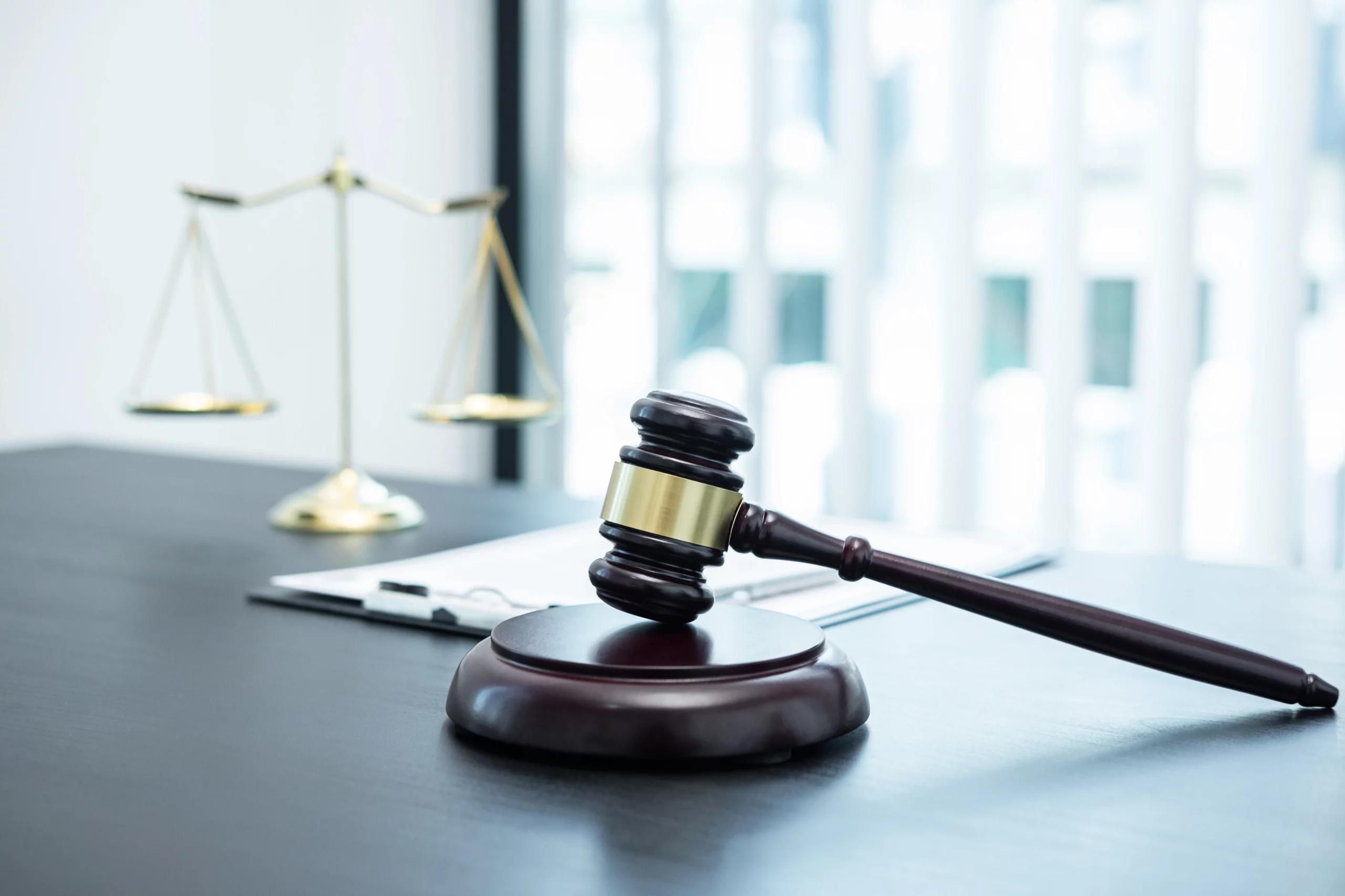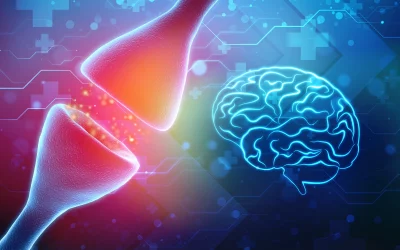TIME REQUIRED FOR BRAIN DAMAGE RECOVERY FOLLOWING A SERIOUS ACCIDENT
Traumatic brain injuries are one of the most prevalent injuries sustained due to catastrophic accidents caused by carelessness. These accidents may vary from minor slips and falls to catastrophic construction catastrophes. There is an astonishing number of ways in which humans incur brain trauma.
When someone has a traumatic brain injury, they may have severe symptoms that significantly impair their quality of life. These symptoms are often associated with a victim’s cognitive skills due to the brain damage received as a result of head trauma. Due to the nature of these injuries, they may often be very difficult to treat, heal, or even identify in certain situations.
After a traumatic brain injury, many individuals wonder, “how long would it take for me to recover?”.
Free Consultation
In Person | Phone | Zoom
HOW LONG WILL IT TAKE FOR A TBI VICTIM TO RECOVER?
We produced this useful TBI healing timetable to assist in answering this issue.
Each brain injury is unique, and as a result, the healing process will be somewhat different for each individual. Some individuals may need months of rigorous therapy in an inpatient institution, while others will proceed swiftly through recovery phases.
The timetable below will give you an idea of what to anticipate throughout TBI rehabilitation. However, it is important to note that this is merely a brief overview. If you are not progressing at the same pace as before, this is not always a negative indication.
THE INITIAL STAGES OF TBI RECOVERY (0-2 MONTHS POST-INJURY)
Your loved one may stay unconscious for many days or weeks after their TBI. As the swelling in their brains subsides, individuals should gradually recover consciousness. They will go through the first three phases of TBI rehabilitation when they regain consciousness. These phases include the following:
Coma. This is the most profound level of unconsciousness. When someone is in a coma, they are
completely unaware of their surroundings and cannot awaken, even when aroused.
State of Vegetation. Individuals in a vegetative condition may seem to be awake at times. Their eyes are capable of opening and closing, but they are unaware of their surroundings. Rather than that, these responses are a result of autonomic responses.
State of Minimal Consciousness. When a person is in this condition, they have a diminished feeling of consciousness. They may respond to stimuli (such as sound or touch) and, in some circumstances, may obey very simple instructions, but this is sometimes quite inconsistent.
When a person becomes more awake and capable of responding consistently to external stimuli, physicians refer to them as having “emerged” from the minimally conscious condition. After this stage, their recovery may begin to accelerate, but they may still need extensive help with basic chores.
HOW LONG WILL IT TAKE FOR A BRAIN INJURY VICTIM TO REGAIN CONSCIOUSNESS?
Predicting the length of time required to recover from a coma is challenging since it is highly dependent on the degree of the individual’s brain damage.
In typically, persons in a coma stay comatose for many weeks before regaining consciousness. However, individuals may stay in a coma for months before regaining consciousness.
The sooner a person awakens from a coma, the better their prospects of complete recovery. Patients who achieve a minimally aware condition within three months, for example, have a high probability of recovering complete consciousness.
After the individual regains consciousness, a period is known as post-traumatic amnesia often follows. During this time, the individual’s capacity to develop new memories is impaired, and they are often bewildered in terms of time, location, person, and circumstance.
Additionally, they may exhibit unusual levels of violence or aggression and may overreact to stimuli. While this period is often upsetting for the family to observe, it is a transient condition.
Almost often, the amnesia and disorientation subside within a few weeks and the individual moves to the next stage of recovery.
REHABILITATION DURING THE SUBSEQUENT STAGES OF TBI RECOVERY
The latter phases of TBI rehabilitation are often the most fruitful. The following are some advantages that a person might anticipate between three and twelve months after a brain injury.
3-6 MONTHS AFTER A TBI: THE MOST RAPID RECOVERY OCCURS
The first six months after a TBI, the brain is in a highly malleable stage. This suggests that treatment will have a significant and obvious effect.
This explains why the most significant improvements in TBI recovery often occur within the first 3-6 months of treatment.
Following then, development may seem to come to a halt. These stumbling blocks are referred to as “plateaus” by therapists and are prevalent throughout the TBI healing process. However, it is critical not to abandon treatment once you reach a plateau.
As depressing as it is to observe no progress, plateaus are only temporary. If you can maintain your resolve, you will begin to see progress again.
Six months to two years after a traumatic brain injury, speech and mobility improve.
As your therapy progresses, you will almost certainly hit key milestones in your recovery. For instance:
AFTER SIX MONTHS, ABOUT 60% OF TBI PATIENTS CAN WALK AGAIN;
After one year, speech and cognitive functions have recovered considerably. Indeed, according to the Journal of the International Neuropsychological Recovery, 64% of TBI patients have a full cognitive recovery after 12 months.
After two years, you will notice an increase in the strength of your hands and legs. While recovery may be gradual, individuals who have been subjected to hemineglect often begin to make more use of their ignored side at this stage.
HOWEVER, WHAT HAPPENS AFTER TWO YEARS? DOES HEALING COME TO
AN END? Never Give Up Hope on TBI Recovery After Two Years and Beyond!
Historically, many physicians felt that a person might anticipate just two years of rehabilitation after a TBI.
Recent research, however, is starting to cast doubt on that notion since we now know that neuroplasticity may be activated years, if not decades, after brain damage.
For instance, recent research tracked TBI patients for more than a decade after the injury. The researchers discovered that even after ten years, some patients continued to improve their performance.
Indeed, some of them need help with everyday tasks after two and five years, respectively. However, after ten years, these same patients had recovered functional independence.
Given that recovery might take many years after a TBI, it is critical for survivors to maintain their counseling and other treatments.
HOW LONG WILL IT TAKE TO RECOVER FROM A TBI?
What we have shown above is a broad schedule for TBI recovery. You may heal considerably more quickly, particularly if you stay committed to counseling and exercise.
On the other side, you may need much more time to heal than our timeframe implies. If you feel your recovery is taking too long and you are not making the progress you want, resist the urge to quit.
It may take some time. However, the best way to secure your recovery is to adhere to your treatment program.
Even when – indeed, particularly when – it may seem pointless.
Finally, it makes no difference how serious your TBI was or when it occurred. Because with sufficient devotion, there is always the possibility of progress.
PERSONAL INJURY CLAIMS AND TRAUMATIC BRAIN INJURIES
Recovery from a traumatic brain injury is a difficult process that is complicated by the unknown extent of the injury’s consequences. If you have a catastrophic injury as a result of another’s carelessness, you may be entitled to pursue compensation for your losses via a personal injury claim.
This procedure is contingent upon your ability to demonstrate that your injuries were sustained as a consequence of an accident caused by the negligent activities of a person who should have known there was a danger but did nothing or took insufficient precautions.
Traumatic brain injuries are quite prevalent and are the subject of several personal injury lawsuits. The attorneys Warrior Car Accident Lawyers, have years of experience effectively resolving cases involving these types of injuries and obtaining settlements that our clients are happy with.
Make no effort to handle a personal injury claim on your own; you risk making critical errors that might considerably diminish the value of a potential settlement. Allow our expert attorneys to help you obtain compensation and pursue accountability for those responsible for your traumatic brain injury. To book a free consultation with Warrior Car Accident Lawyers, call 719-300-1100 or email us.
WHAT IS THE DEFINITION OF A TRAUMATIC BRAIN INJURY?
A traumatic brain injury occurs when a person’s skull and brain are damaged due to a large physical force acting on their head. This may occur due to blunt force trauma produced by an item impacting the skull or as a result of forceful head jerking or shaking.
Whatever the source of a traumatic brain injury, the damage is often severe and should always be evaluated by a licensed physician as soon as possible. Traumatic brain injuries may manifest themselves in a variety of ways. The most prevalent is a concussion, which affects a large number of individuals each year.
Brain contusions, coup contrecoup injuries, diffuse axonal injuries, and penetrating brain injuries are other prevalent traumatic brain injuries.
TRAUMATIC BRAIN INJURIES: SYMPTOMS
When someone has a traumatic brain injury, they face a high chance of significant brain damage, which may manifest as symptoms affecting cognitive functioning, speech control, personality, etc. Several of the most prevalent traumatic brain injuries include the following. Confusion
Inability to focus Mood swings Slurred speech
Reduced problem-solving abilities Alteration of personality Aggression
Sleeping problems
Difficulty maintaining equilibrium Vertigo
Seizures Nausea Drowsiness Memory Issues
Lack of Coordination Depression
Rehabilitating Traumatic Brain Injuries
While traumatic brain injuries are unquestionably severe, so are a variety of other ailments that might result from a horrible tragedy. Numerous injuries are treatable with the appropriate care and patience. What about a concussion or a traumatic brain injury? The answer, however, is not as straightforward as a simple yes or no.
Finally, it is determined by the damage, location, severity, and the individual’s health before the accident. Sadly, despite these precautions, severe brain injuries often result in a significant risk of chronic damage.
Milder traumatic injuries such as concussions may be dangerous, but with enough time and little permanent damage, they can ultimately recover independently.
However, suppose someone sustains repeated concussions or obtains two within a short time.
In that case, they are at a high risk of developing chronic encephalopathy or second impact syndrome, resulting in permanent and severe brain damage.
MANAGING THE EFFECTS OF TRAUMATIC BRAIN INJURY
Other types of traumatic brain injuries have a significant chance of causing lasting damage. However, progress is being made each year to treat this damage and lower the severity of symptoms a person might experience. You may heal entirely from a traumatic brain injury, but you may not, depending on the circumstances above.
Fortunately, there are a variety of treatment options available, including medication, surgery, and counseling. While an accident may inflict lifelong injury, it does not have to destroy your life. There is often hope, but increasing your chances requires time and money.
SEEK AN EXPERIENCED LAWYER FOR TRAUMATIC BRAIN INJURY
She is choosing a brain injury attorney aware of the long-term expenses associated with neuropsychological difficulties produced by a traumatic brain injury. He or she will vigorously pursue the utmost recompense feasible for past and future medical expenses, lost income, pain and suffering, impaired quality of life, and, in certain situations, punitive damages.
Unlike some legal companies that want to settle fast for a quick profit, a reputable brain injury law company has the financial means to cover the expense of litigation and the drive to pursue the maximum compensation.
Warrior Car Accident Lawyers, has obtained several significant financial awards for traumatic brain injury patients suffering from neuropsychiatric complications. If you or a loved one has suffered a head injury, call Warrior Car Accident Lawyers, for a free case review. You may be eligible for a sizable monetary prize. Call us at 719-300-1100 or send us an email to arrange for a free consultation about your situation.












